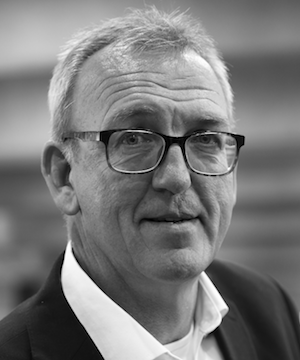Ask the Experts: James Latham, Producer of The Iceberg on ‘Positive Impact’
James Latham built a successful career in publishing and events media. In 2002, he sold his business to a multinational and has since dedicated his reporting and publishing skills to advancing the business and professional events sector on behalf of the industry. We spoke to him about the ‘positive impact’ of events, and how organisations can implement thinking around the topic into their own work.
Can you explain what The Iceberg does and your own background?
The Iceberg (www.the-iceberg.org) is the legacy of business and professional events platform presented by The Joint Meetings Industry Council (JMIC) – the global collaboration of business events industry associations. I am the producer of The Iceberg on behalf of these industry associations and additional industry partners.
How does the theme of ‘Positive Impact’ reflect what The Iceberg does?
At The Iceberg and JMIC, we speak of ‘positive outcomes’ or ‘legacies’ which relate to the mission of the organisation responsible for the event and the vision of the destination hosting it. Within the industry we erroneously refer to impacts largely in relation to the immediate visitor economy of an event. Legacies of events are outcomes which grow over time – in trade, innovation, education, healthcare, conflict resolution, etc – and these outcomes relate directly to the purpose of the event.
For example, the World Federation of Public Health Associations’ mission is to advance public health all over the world. One of the instruments to achieve this is their annual congress. Its outcomes relate to preventative over curative healthcare as a result of changing policy, increasing public awareness, and the adoption of social medicine and changing behaviour. These outcomes grow greater over time, whereas the tourism impacts cease when the last delegate departs the destination.
What trends have you observed within the industry theme of ‘Positive Impact’ and do you anticipate any new trends?
I see much greater alignment between the associations and the destinations in relation to the purpose of the event – where there is either/or both the need for knowledge exchange or a hub of knowledge in a particular destination. For example, World Diabetes being held in Dubai because of the obesity/diabetes pandemic, or the American Society of Civil Engineers hosting their event in Panama because the Panama Canal is every civil engineer’s Holy Grail – rather than a shiny new convention centre or beach resort offer winning the day. The associations are much more in tune with why the event is taking place and seeking to leave a legacy.
Equally, destination marketing organisations (DMO) are beginning to align their bids to events which can support the broader 2030 Vision or Industrial Development Strategy across key sectors rather than chasing numbers for numbers sake. Since the associations want alignment, it’s only natural that successful bidding lends itself to relevance, to the destination as well as potential delegates, rather than price – so it’s a win win.
How can associations implement this to create their own impact work?
Associations should implement a measurement factor – both immediate and longitudinal.
Last year, I met some of the UN World Tourism Organization team at IBTM World to talk about aligning the industry to the UN’s Sustainable Development Goals. One of the members opened the conversation with immediate criticism of food waste at events, swiftly followed by the appalling carbon footprint associated with the international delegates attending. Before replying, I took the opportunity to ask for the ‘before and after’ statistics of COP15, the Kyoto and Paris Accords resulting from UN events. Not one of them could answer how these events had aligned to the purpose of the meeting – to reduce carbon emissions, changing attitudes to climate change, policy and legislation!
However, Vienna University collaborated with the European Society of Radiology and measured the value of the knowledge exchange imparted at their 2018 congress in the city. The results proved that there was significant positive impact from the event. These collaborations should be applauded and it should, in my view, become best practise for every association to engage in mission-related measurement and legacy, not least because it demonstrates value to their existing and future memberships, but as an opportunity to educate destinations seeking to host the event next time around.
Do you have any examples of excellent impact/legacy work you’ve observed in relation to this theme?
On www.the-iceberg.org there is a plentiful supply of case studies which can be adopted to measure legacy in relation to the organisational mission and event. Take a look!
